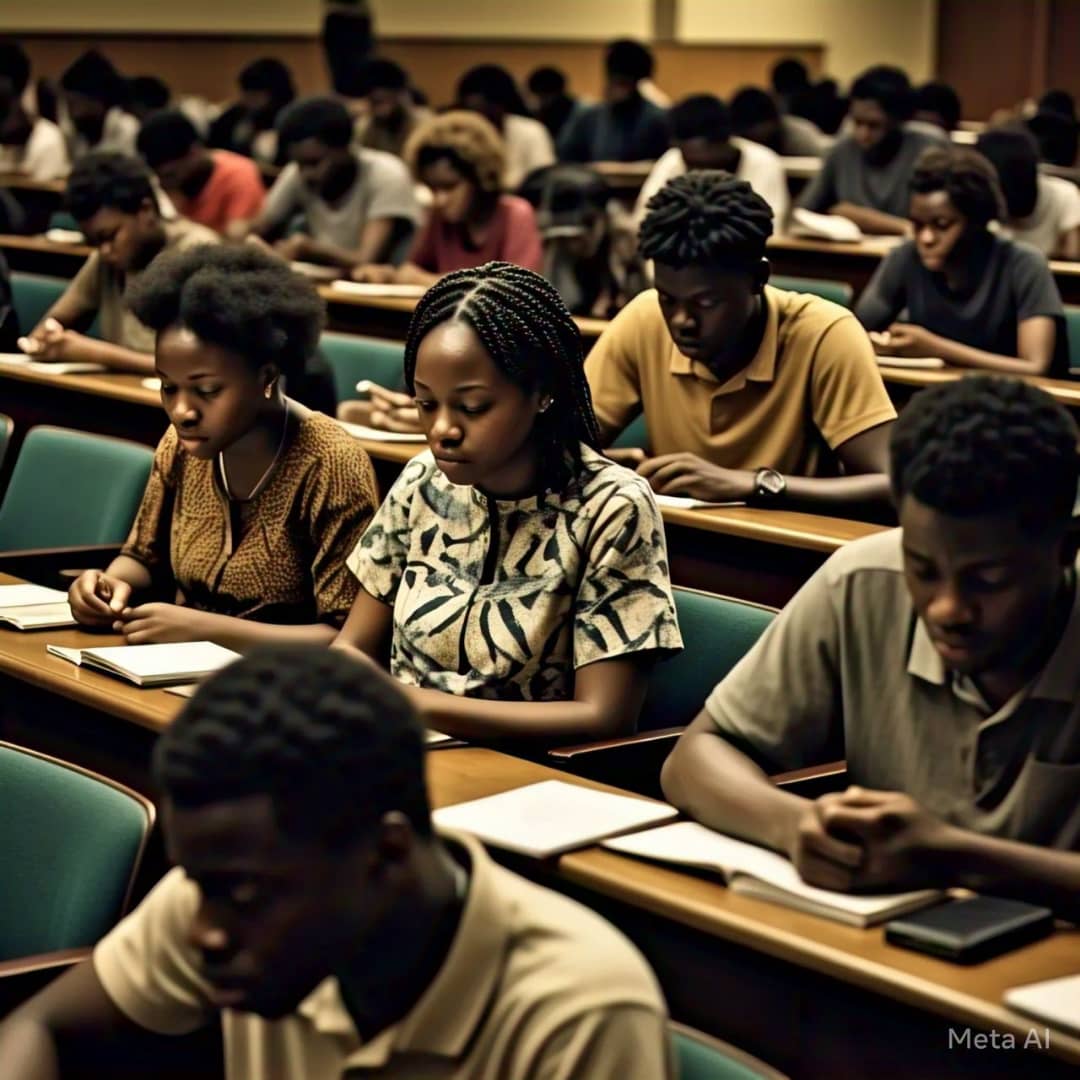By Twink Jones Gadama
The recent decision by the University of Malawi to expel 24 students for academic misconduct is a harsh and inconsiderate measure that prioritizes punishment over rehabilitation, effectively jeopardizing the students’ future prospects.
Rather than upholding the institution’s integrity, this draconian response exposes the university’s failures in handling cases of academic misconduct, raising concerns about the fairness, proportionality, and long-term consequences of such a severe penalty.
While academic integrity is undeniably crucial in maintaining the standards of education, the university’s response raises questions about fairness, proportionality, and the potential long-term consequences for the students involved.
The expulsion of these students, particularly in light of the reasons cited—unreported collaboration during tests, plagiarism, and cheating during practical tests—seems excessively punitive and fails to consider the broader context of their actions.
Academic institutions are meant to be places of learning, growth, and development.
They should foster an environment where students can learn from their mistakes rather than face irrevocable consequences that could derail their educational and professional futures.
The decision to expel these students not only disregards the potential for rehabilitation but also sends a chilling message to the student body about the university’s approach to academic integrity.
Firstly, it is essential to recognize that the reasons for expulsion—unreported collaboration, plagiarism, and cheating—are serious offenses that warrant attention.
However, the university’s response appears to lack a nuanced understanding of the circumstances surrounding these actions.
In many cases, students may resort to dishonest practices due to a variety of pressures, including academic stress, lack of preparation, or even a misunderstanding of what constitutes acceptable collaboration.
Instead of expulsion, the university could have opted for a more educational approach, such as providing counseling or academic support to help students understand the importance of integrity and the consequences of their actions.
Moreover, the expulsion of these students raises concerns about equity and fairness.
Not all students who engage in academic misconduct do so with the same intent or understanding.
Some may have acted out of desperation, while others may have been unaware of the rules governing collaboration and plagiarism. A blanket punishment of expulsion fails to take into account the individual circumstances of each case.
A more equitable approach would involve a thorough investigation into each student’s actions, allowing for a range of consequences that reflect the severity of the misconduct and the intent behind it.
An alternative to expulsion could involve disqualifying the specific paper or test in which the misconduct occurred, coupled with a requirement for the students to repeat the course.
This approach would serve as a clear message that academic dishonesty is unacceptable while also providing students with an opportunity to learn from their mistakes and continue their education.
By allowing students to retake the course, the university would be acknowledging that mistakes can be part of the learning process and that students can grow and improve when given the chance.
Additionally, the university could implement educational programs focused on academic integrity, emphasizing the importance of honesty in academic work and the skills necessary to succeed without resorting to dishonest practices.
Workshops on time management, study skills, and understanding academic policies could help prevent future incidents of misconduct.
By investing in the development of students’ skills and understanding, the university would be fostering a culture of integrity rather than one of fear and punishment.
The decision to expel these students also raises questions about the university’s commitment to its mission of education and personal development.
Higher education institutions are tasked with preparing students for the challenges of the real world, which often includes making mistakes and learning from them.
By opting for expulsion, the university is effectively closing the door on these students’ educational journeys, potentially limiting their future opportunities and contributing to a cycle of disadvantage.
Furthermore, the impact of such a decision extends beyond the individual students involved.
It creates a culture of fear among the student body, where the fear of severe punishment may lead to increased anxiety and stress. Students may feel compelled to hide their struggles rather than seek help, fearing that any misstep could result in expulsion.
This environment is counterproductive to the goals of education, which should prioritize learning, growth, and support.
In addition to the emotional and psychological toll on the students, the university’s decision could have broader implications for its reputation.
Institutions that are perceived as excessively punitive may deter prospective students who are seeking a supportive and nurturing educational environment.
The university risks alienating its student body and creating a culture of distrust between students and administration.
A more balanced approach to academic misconduct could enhance the university’s reputation as a place that values education and personal development over punishment.
It is also worth considering the potential long-term consequences of expulsion for the students involved. For many, the university experience is a critical period of personal and professional development.
Being expelled can have lasting effects on a student’s self-esteem, mental health, and future career prospects.
Many employers value resilience and the ability to learn from mistakes, and a record of expulsion may overshadow the positive attributes that these students possess.
By allowing students to remain enrolled and learn from their mistakes, the university would be supporting their growth and development as individuals.
In conclusion, while the University of Malawi’s commitment to academic integrity is commendable, the decision to expel 24 students for academic misconduct is a misguided approach that fails to consider the complexities of the situation.
A more balanced and fair response would involve disqualifying the specific papers or tests in which misconduct occurred and requiring students to repeat the courses. This approach would not only uphold the standards of academic integrity but also provide students with the opportunity to learn from their mistakes and continue their education.
The university has a responsibility to foster an environment that encourages learning, growth, and support, rather than one that instills fear and punishment. By prioritizing education over expulsion, the University of Malawi can demonstrate its commitment to the development of its students and the values of integrity and resilience that are essential for success in both academic and professional pursuits.




